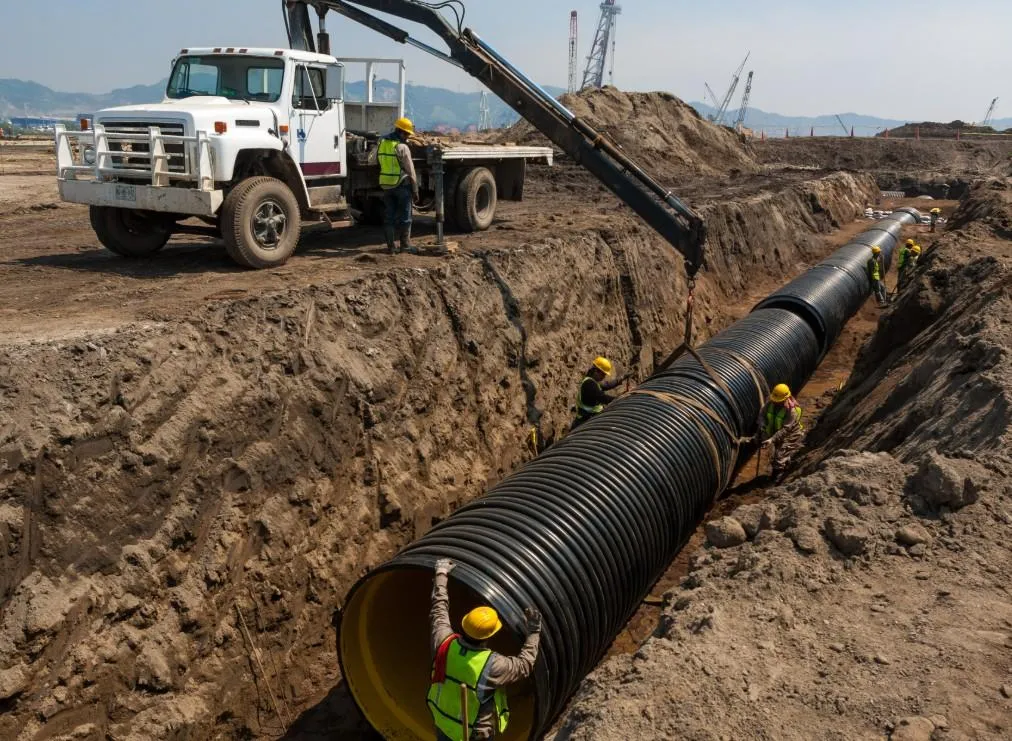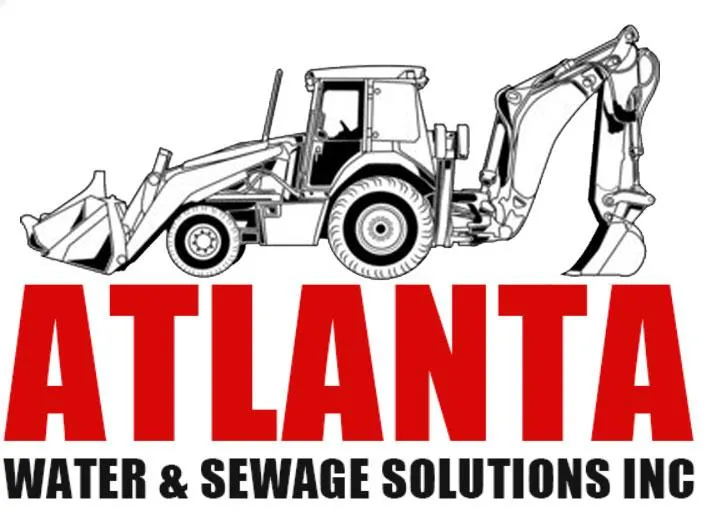
Best Yard Drainage Systems near Atlanta | Atlanta Water & Sewage
1. Why Your Yard Is Always Wet (Even When It’s Not Raining)
You’ve mowed the grass. You’ve pulled the weeds. But no matter how much care you give your yard, it’s still soggy. Maybe there’s standing water by the fence. Maybe the lawn squishes under your feet like a sponge. You might be wondering: Is this normal?
You’re not alone. If you live in or near Atlanta—especially in Fulton, Greene, Forsyth, Gwinnett, Walton, Hall, Clarke, or Barrow County—you’ve probably had drainage issues at some point. Georgia’s red clay soil doesn’t absorb water like sandy or loamy soil. And when heavy rain comes (and it will), the water pools fast and stays too long.
It’s frustrating. You want a yard you can enjoy—not one you tiptoe around. And beneath that frustration is a real fear: What’s all this water doing to my foundation? That’s a smart question.
Let’s talk about it.
2. What Happens If You Ignore Drainage Problems
We’ve seen it too many times—small puddles turn into big problems. Yard drainage isn’t just a cosmetic issue. Here’s what can happen if you don’t deal with it:
Foundation cracks: Water that sits against your home can seep into the soil and push against your foundation.
Basement leaks: A wet yard can lead to water creeping into your crawlspace or basement.
Soil erosion: That nice landscaping you paid for? It might wash away slowly.
Mold and mildew: Especially in shaded areas, standing water leads to damp environments where mold thrives.
Mosquitos and bugs: Pooled water is the perfect breeding ground.
In short, drainage issues are like termites. You don’t always see the damage right away, but it’s happening.
3. What Makes Drainage in Atlanta So Tricky?
One word: soil.
Georgia’s red clay soil is dense. It doesn’t drain water quickly, especially after it’s been compacted by foot traffic, equipment, or years of erosion. Even a slight slope can send water running downhill—straight to your patio, crawlspace, or garage.
Then there’s grading. Many homes in the greater Atlanta area were built on land that wasn’t properly graded for water runoff. That’s not your fault—but it’s something you have to fix if you want a dry yard.
And don’t forget about those hard surfaces—driveways, sidewalks, retaining walls. If they weren’t installed with drainage in mind, they might be sending water right where you don’t want it.
4. The Most Popular Yard Drainage Systems (And Which Might Work for You)
There’s no one-size-fits-all solution when it comes to yard drainage. What works in one neighborhood in Fulton County may be totally wrong for another home just 20 minutes away.
Here are a few systems we regularly install:
French drains: Ideal for moving subsurface water away from your yard or foundation.
Catch basins: Great for capturing surface water from driveways, patios, or low spots.
Channel drains: Perfect for paved areas like pool decks and garages.
Dry wells: Used to collect and slowly disperse water underground.
Downspout extensions: A simple fix to send roof water farther from your home.
Swales and grading: Sometimes shaping the land is the smartest solution.
The best system for your home depends on your yard’s slope, soil type, water patterns, and even how you use your outdoor space.
5. French Drains vs. Catch Basins vs. Dry Wells: What’s the Difference?
Here’s a quick breakdown that might help:
Each has a place. Often, we combine them to build a drainage system that actually solves the problem—not just hides it.
6. How to Choose the Right System for Your Property
Here’s the good news: You don’t have to figure this out alone.
But it does help to understand what to look for. If your yard has:
Pooling water near the foundation → You probably need a French drain or downspout extension.
Water rushing down your driveway → A channel drain or catch basin could help.
Puddles in the backyard after it rains → A dry well or swale might be the answer.
Flat yard with no slope → You may need regrading before anything else will work.
We’ve walked hundreds of properties just like yours—and every one is different.
7. The Cost of Yard Drainage in Atlanta: What You Should Expect
We get this question a lot: How much does yard drainage cost in Georgia?
And the honest answer is—it depends.
Here’s a ballpark:
Simple downspout extensions: $300–$800
French drain installation (50 ft.): $2,000–$4,500
Catch basin system: $1,500–$3,500
Dry well installation: $1,000–$2,500
Full yard grading or custom system: $4,000–$12,000+
Prices vary based on yard access, how much pipe is needed, how deep we dig, and whether equipment is required. We always walk your property first, listen to your goals, and give you a fair price—no pressure.
8. Do DIY Drainage Solutions Actually Work?
We’re not here to scare you away from trying. If you’re handy, there are a few things you can do on your own:
Extend your gutter downspouts
Reroute sump pump discharge lines
Add gravel to soggy areas temporarily
Adjust slope away from the house
But here’s the catch: Most DIY fixes are short-term. Without the right tools and understanding of water flow, you might just be moving the problem instead of solving it.
We’ve had customers spend thousands trying to fix things themselves—only to call us later to do it right. Don’t let that be you.
9. Why It Pays to Work with a Local Drainage Expert
There’s a difference between someone who installs drainage systems—and someone who understands the land.
We’ve been serving homeowners in Oxford and across Fulton, Forsyth, Gwinnett, Walton, and Greene Counties for years. We’ve worked on new homes, old homes, steep lots, and flat ones. That experience helps us predict what kind of solution will actually work on your property.
We also understand local soil types, county code requirements, and what stormwater management looks like in your specific area.
We’re not some out-of-state company chasing leads. We’re your neighbors—and we treat your property like it’s our own.
10. What to Expect When You Work with Atlanta Water & Sewage Solutions, Inc
We’re not the biggest outfit in Georgia—but we’re obsessed with getting drainage right.
Here’s how it works:
Site Walk: We walk your property with you. We listen. We look for the root cause.
Game Plan: We’ll design a drainage solution based on your yard—not a cookie-cutter fix.
Transparent Pricing: We’ll explain the price, materials, timeline, and what’s involved.
Install Day: Our crew shows up, respects your property, and gets the work done safely.
Follow-Up: We check back after a rain or two. If anything needs a tweak, we’re on it.
We believe drainage systems should be invisible—and reliable. Once it’s done, you shouldn’t have to think about it again.
11. Final Thoughts: Drainage Problems Don’t Solve Themselves
If you’ve been walking around a soggy yard hoping the next rainstorm won’t flood your patio or erode your landscaping—it might be time to act.
A good yard drainage system isn’t just about keeping your shoes dry. It’s about protecting your investment, your home, and your peace of mind.
At Atlanta Water & Sewage Solutions, Inc, we’re here to help you do exactly that—with real solutions that fit your property, your goals, and your budget.
So if you’re tired of tiptoeing through puddles in Fulton County, let’s fix the problem at the source.
Your yard deserves better. And so do you.

